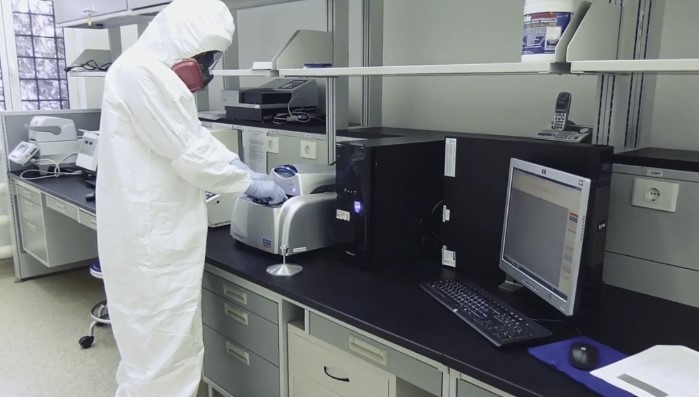WHERE DO YOU NEED TO STUDY TO BECOME A VIROLOGIST?
Views: 3248

Virologists are heroes of our time. The lives of many people depend on the result of their work. Every crisis gives birth to its own heroes. Now a special role is assigned to representatives of the profession, about whom you do not often hear about in calm times: virologists.
Scientists around the world are working on the creation of a vaccine against the SARS-CoV-2 coronavirus. A drug capable of protecting against a deadly infection is also being developed by employees of the Kazakhstan Research Institute for Biological Safety Problems (NIIPBB). In Kazakhstan, they train to become a virologist at the KazNU named after al-Farabi, the university has educational programs (EP) "7M05114-Virology" - Master and "8D05110-Virology" - Doctorate, which are developed jointly with the Research Institute of Biological Safety Problems (RIBSP). Students are offered three languages of instruction - Kazakh, English, Russian.

Virology is the branch of microbiology that studies viruses. A modern virologist is a multi-disciplinary specialist. He is engaged in laboratory research and diagnostics, knows microbiology, chemistry, molecular biology, biochemistry, genetics. There is no separate specialty "Virology" in the undergraduate program, but there are educational programs ("Biotechnology", "Biology", "Microbiology", etc.), after which you can enter the educational programs "Virology" - master and doctoral studies, and further work in the field of basic science or industry (at a biotechnological or pharmaceutical enterprise). The training is carried out on the basis of the Research Institute of Biological Safety Problems (NIPSBB) with state-of-the-art laboratories and lasts 4 semesters for masters and four semesters for doctoral students. At the present time, NIIPBB KN MES RK is carrying out work in the following scientific areas: "Development of technologies for the preparation of test systems for the diagnosis of infectious animal diseases using the ELISA method", "Development of technologies for the preparation of test systems for the diagnosis of infectious animal diseases by the PCR method", "Development of technologies preparation of prophylactic drugs against dangerous and highly dangerous infectious diseases of humans, animals and birds "," Development of a biological model for assessing the quality of vaccine biological products "," Development of modern biotechnology of vaccine biological products based on recombinant strains "," Development of cell systems for the cultivation of microorganisms and the preparation of biological products " , "Biotechnological bases for obtaining, maintaining, refreshing and depositing strains of microorganisms for the production of biological products," Biotechnological bases for obtaining bacteriophages "," Biotechnology of cultivation of microorganisms "," Technological bases for the preparation of other forms of biological products "," Quality control and technology of biological products "
Educational program "8D05110-Virology" - Doctoral studies include compulsory disciplines: "Academic writing", "Methods of scientific research", "Molecular mechanisms of viral diseases", "Methods of molecular virology". Later, you can choose the following disciplines for a narrow specialization - "Biosafety, Biosecurity and Bioethics", "Applied Virology", "Immunoprophylaxis and Immunotherapy", "Bacteriophages in the treatment of bacterial infections." As part of the training of specialists, research practices are provided on the basis of the laboratories of the NIIBBB, a trip for a three-month internship to the laboratory of a foreign co-director of a doctoral student.
Head of the Department of Biotechnology Kistaubaeva A.S.
Candidate of Biological Sciences, Associate Professor Kayyrmanova G.K.








